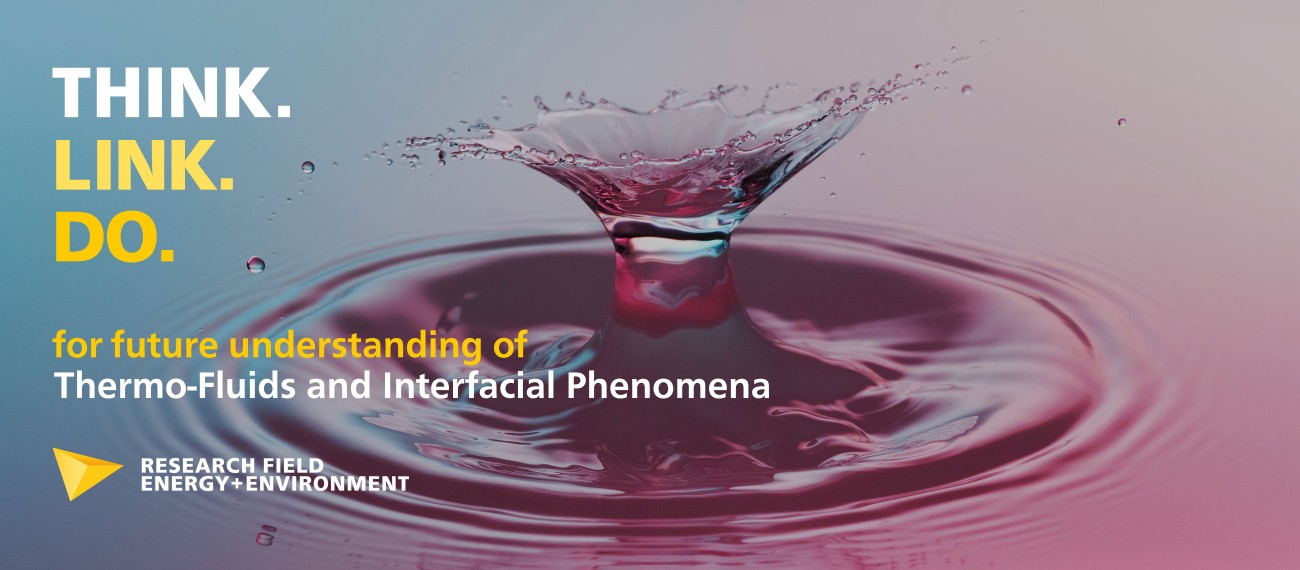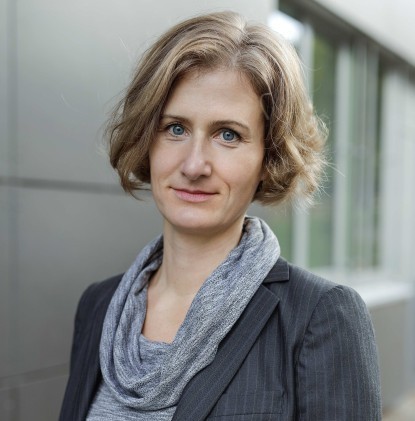Static and Dynamic Wettability
The wetting of solid surfaces by liquids plays a decisive role in nature and in many technical applications. Examples are the coating of metals, the printing of surfaces, or the wetting of warm surfaces by coolants.
Efficient and reliable methods for characterising wetting phenomena as well as a good understanding of the underlying causes and mechanisms are essential. A special focus is on dynamic wetting processes in interaction with transport processes.
Furthermore, the investigation of the wetting dynamics of complex liquids is of great importance. Among complex liquids, we see, for example, liquids that are characterised by a non-Newtonian flow behaviour. Examples of this behaviour are polymer solutions, polymer enamels, dispersions, or emulsions.
Our common goal in the profile topic TFI is to better understand wetting behaviour through suitable experiments, to provide the basis for theoretical and predictive numerical description in order to be able to optimise surfaces, specifically with regard to desired wetting properties.
We are developing methods for the characterisation and detailed description of wetting processes, while investigating the underlying causes. A special focus is on dynamic wetting processes with complex fluids and surfaces as well as on the interaction with transport processes.
Heat and Mass Transfer
The improvement of heat transport and heat transfer plays a key role in the development of numerous products and processes, for example in the areas of material processing, micro-reaction technology, cooling of high-performance electronics, etc.
These developments are trending towards miniaturisation, increasing power density, and expanding to more extreme operating environments.
In order to meet increasing demand, the research approaches in the profile topic TFI go beyond conventional methods and technologies for improving heat transport. The common goal is to achieve significant advancements through clever and targeted combinations of surface structures and wetting characteristics.
For example, the TFI researchers are working together on modelling molecular dynamic transport processes at interfaces, on mathematical and numerical methods for multiphase heat transfer, on innovative approaches to temperature measurement at interfaces, as well as on predicting and increasing the critical heat flux density.
We are investigating the heat transfer properties of surfaces experimentally as well as theoretically and numerically, with the aim of significantly increasing heat and mass transfer through a smart combination of surface structures and wetting properties.
Multiphase Flows
This research area focuses on the fundamental investigation of multiphase flows. The focus is on surface tension-driven flows, particle-loaded flows, flows with phase changes (solidification, condensation, evaporation), flows with rheologically complex fluids and processes in which liquids are atomised.
In addition to the goal of developing and researching new methods for the experimental characterisation, description, and simulation of such flows, one goal is also to derive strategies for targeted flow control from the findings.
In addition to the gain in knowledge from the elementary processes taking place locally in multiphase flows, these investigations and findings are of great relevance, for example, in understanding the manufacturing of aircraft wings, in improving the spray cooling of forging dies, or for more efficient segregation in technical processes.
We are developing methods for the detailed description and characterisation of multiphase flows using experimental, theoretical, and numerical methods in order to fundamentally analyse and optimise technological processes.
Reactive Flows
Reactive flows are those in which chemical reactions take place at the same time. In the profile topic TFI, reactive flows near walls are studied in particular. These are of fundamental importance for a large number of processes in the environment and technology. In energy technology applications, for example, the presence of walls leads to unwanted wall heat losses, incomplete oxidation reactions and the formation of air pollutants. These flows are not well understood and cannot yet be fully predicted with available mathematical models.
In order to better understand complex reactive flows near walls, efficient mathematical models and numerical methods for the accurate calculation are being created in the profile topic TFI and validated tools for numerical simulation are being developed for process prediction.
The findings from this work can be used to systematically improve processes and applications from energy and process engineering with high technical and ecological relevance.
We are exploring the interactions of reactive flows by combining experimental, theoretical and numerical methods. On this basis, we want to systematically improve applications from energy and process engineering.



